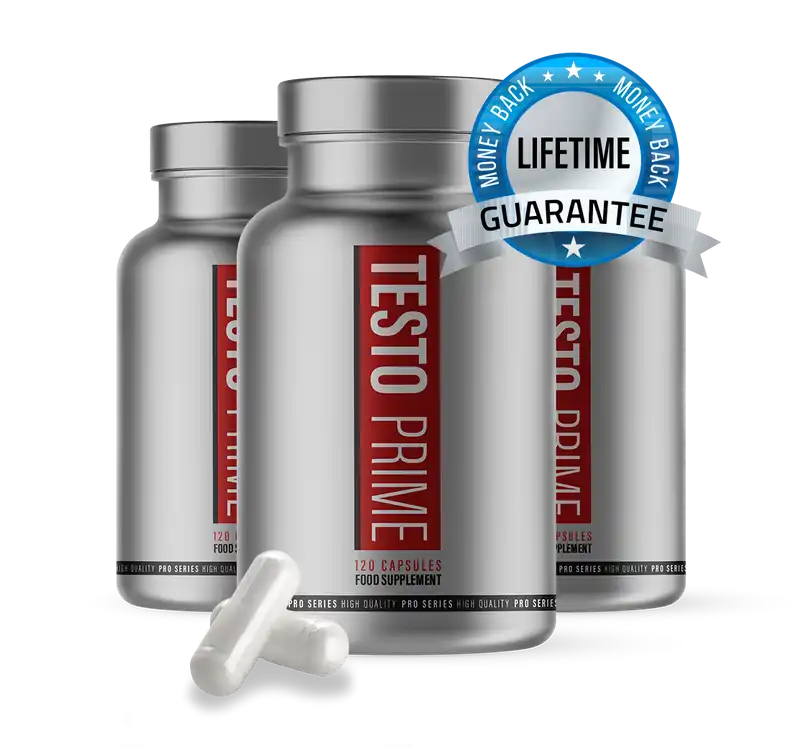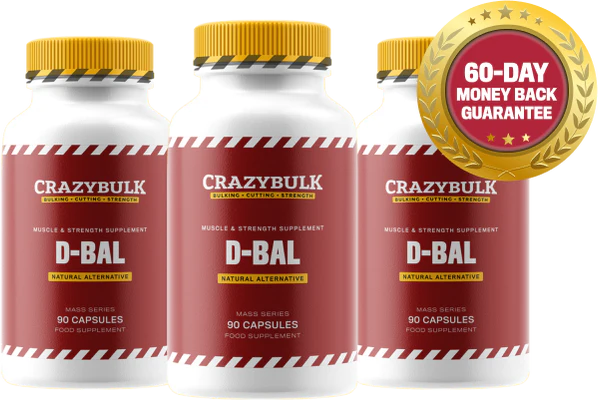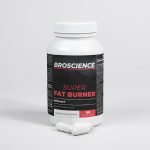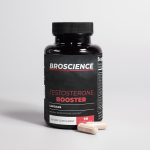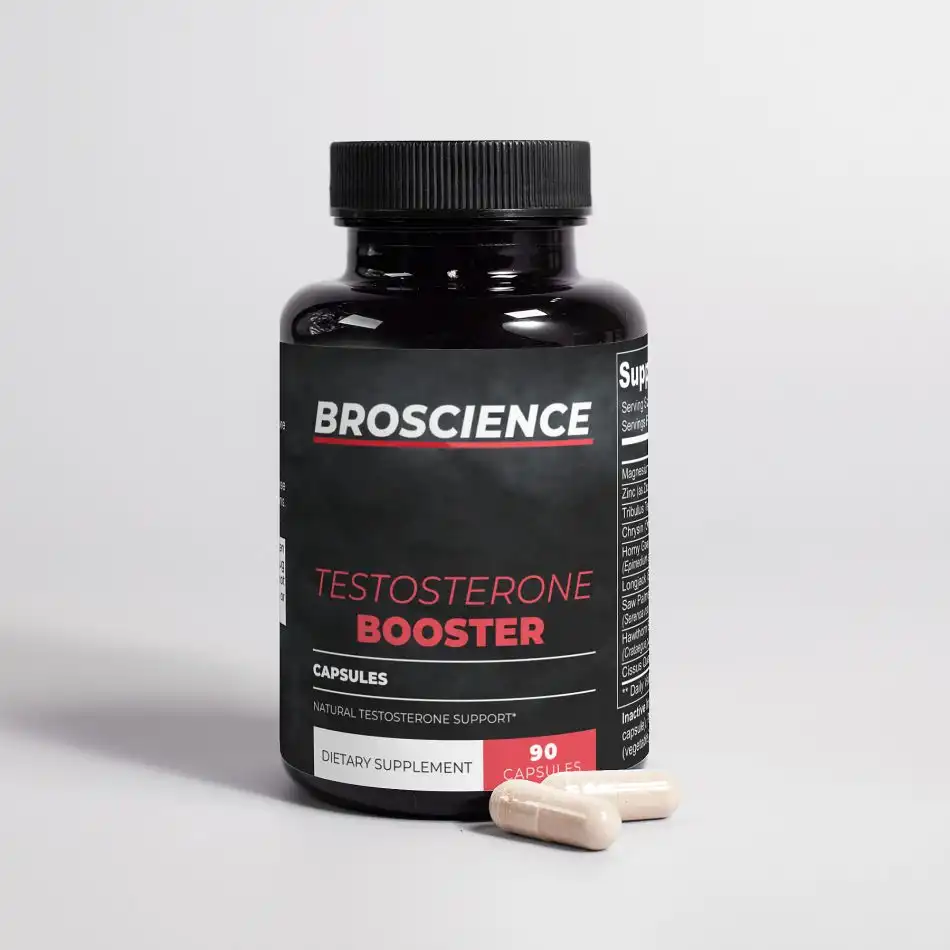Are you looking to build lean muscle? If so, having a sound nutrition plan is key!
A well-thought-out diet is essential for reaching your fitness goals.

Eating the right nutrients in the right amounts will ensure that you stay on track and get those hard-earned muscles.
In this blog post, we’ll explain how to assemble an effective muscle-building nutrition plan that will help you maximize your results while still leading an enjoyable lifestyle.
Because, after all – training and eating are both a form of enjoyment and art.
Unleash the full testosterone-producing potential in your body. Improve muscle growth and increase fat loss fast.
You don’t have to consume bland chicken, rice, and broccoli all day just to make gains.
In fact, there is a better way…
If you’re wondering how to put together your muscle building nutrition plan, read on to find out!
What Happens When We Train?
Shedding your old self by undergoing weight training is an essential part of any fitness regimen.
And just as weight training helps to break up old habits, it also breaks down muscle protein.
My Top Recommended Supplements
However, fear not – this doesn’t cause a decrease in performance if paired with the right nutrition plan.
When our muscles are put through their paces, and the muscle protein gets broken down, our bodies are well equipped to replace those proteins with new ones that are far more efficient than before.
Besides protein, however, during intense training, the body also uses up the so-called “muscle glycogen.”
Muscle glycogen is, at its essence, the stored form of carbohydrates.
In other words, when we consume carbs, the body digests them, converts them into glucose, and then uses a portion of what it converted for whatever functions it needs.
The body then stores the unused chunks of glucose for later use in the form of glycogen – this is primarily stored in the muscles and, secondarily, in the liver.
Protein Synthesis VS Breakdown
Building muscle is a delicate balance between tearing down and rebuilding. The key to growth lies in striking the right balance between muscle protein breakdown and protein synthesis.
If protein breakdown outpaces synthesis, muscle loss will occur. But, if synthesis prevails, the result is lean, strong muscle.
So, think of your muscles as a construction site, with protein synthesis being the bricks and mortar that build and protein breakdown being the wrecking ball that tears down.
Maintaining the balance between the two is crucial for creating a solid and enduring muscle-building foundation.
Are you serious about FINALLY losing that stubborn belly fat? Then this is for you. Powerful fat burner that helps you supercharge your metabolism for fast results.
So, if you want to build a physique worthy of a billboard, this intricate balance is perhaps the most important factor.
And guess where the key to keeping the balance is? That’s right, in your nutrition!
Legal muscle-building supplement that's designed to mimic the effects of dianabol without all side effects.
So, how to put together your muscle building nutrition plan?
Let’s answer this by first covering the fundamentals of nutrition, and what matters the most.
What Matters In Nutrition?
When it comes to gaining muscle mass, training stimulus plays a major role in our journey, but it’s not the only component for success.
Although a great training program will help you get there, what truly matters is being smart about recovery – and this mainly comes from nutrition.
Eating enough quality food to fuel your body through recovery periods is essential!
Optimal recovery through nutrition should be considered the cornerstone of any successful muscle-building program.
Now let’s have a look at what truly matters in muscle-building nutrition.
Calories In A Surplus
Eating more calories than you burn has long been touted as one of the most effective ways to build muscle mass.
After all, when it comes to building strong, healthy muscles, having enough fuel in the “tank” is key.
Eating a calorie surplus gives your body the energy, nutrients, and proteins necessary for muscular growth so that you can turn heads at the gym or on the beach!
Seriously, though – it is considered that a caloric surplus is more likely to help you strike a balance between muscle protein breakdown and muscle protein synthesis in favor of the synthesis.
This is why you should aim to be about 200-300 calories above your daily maintenance needs.
Keep in mind, though. It’s not just about calories because food quality matters too!
Make sure to opt for foods that are packed with nutrients rather than processed chemicals.
That’s an essential part of our answer to the question about how to put together your muscle building nutrition plan.
Protein Intake
Protein is the fundamental building block for muscle building and is an essential component of any muscle-gaining nutrition plan.
It helps to keep your body from going into a catabolic state, where it starts breaking down hard-earned muscle tissue.
By increasing the amount of dietary protein you consume, you can counter this loss and help ensure that your body has a steady supply of raw materials needed for muscle protein synthesis.
You might have heard it before – we are all made of protein, and it’s not just the muscles that need it!
In fact, most of the systems and tissues in your body require protein to sustain healthy functioning.
Fat Intake
Fat is essential for getting results from an exercise/nutrition regimen but is often overlooked as trainees focus on their protein intake.
It is actually a key component of overall health and nutrition due to its unparalleled ability to help regulate hormone production and enhance nutrient absorption in the body.
That’s right – those fats you normally try to avoid can actually do wonders for your overall well-being when used judiciously!
So make sure you include some good fats into your daily meals and snacks – things like nuts, avocados, olive oil, and coconut oil!
Are Carbs Guilty?
Alright, so many questions about how to put together your muscle building nutrition plan… Are proteins and fats all you need? Can you include carbs? Do carbs make you fat?
Well, carbohydrates often get a bad reputation, but they are far from the enemy. Quality carbohydrates, in fact, play a crucial role in optimizing your training performance.
Glucose, the primary source of energy derived from carbohydrates, is the optimal fuel for high-intensity training focused on building muscle.
Yes, that’s right – if you do decide to cut out carbs from your eating plan and go keto/carnivore, you will probably suffer decreased performance!
So, don’t shy away from quality carbohydrates.
Embrace them as an essential tool to power your workouts and reach your muscle-building goals.
How to Put Together Your Muscle Building Nutrition Plan
Now that we have the essentials in place, it is time to go through the steps to building your plan.
If you’re wondering how to put together your muscle building nutrition plan, say no more!
Let’s have a look at the fundamentals.
Calculating Daily Needs
The first step to building a solid muscle-building nutrition plan is calculating your daily caloric needs.
This will help you determine how many calories you need to consume daily to maintain your weight, and then add 10% of that number on top to create the above-mentioned surplus.
The simplest method to calculate your daily maintenance needs is to take your weight in pounds and multiply it by 15.
If you weigh 150 lbs, that would mean your daily caloric requirements for maintenance would be around 2250 calories.
And a surplus would be right around 2500 calories, which is your ballpark.
Nevertheless, you have to monitor your progress and adjust, as these calculations are just an approximation.
Calculating Macronutrients
The second step in creating a muscle-building nutrition plan is to calculate your macronutrient needs.
As you learned, macronutrients are the three main nutrients required by the body in large amounts, and they include protein, fats, and carbohydrates.
To build muscle, it is important to consume enough protein, with a recommended intake of around 1g per lb of body weight.
Fats also play a crucial role in overall health and should make up about 0.4g per lb of body weight.
The remaining calories can come from carbohydrates.
And so, if we take the above example for someone weighing 150 lbs, here’s what this would mean:
- Protein = 150 lbs * 1g = 150g, which is 600 calories because protein has 4 calories per gram
- Fat = 150 lbs * 0.4g = 60g, which is 540 calories because fat has 9 calories per gram
- Out of the 2500 calories you need, 1140 come from protein and fat combined, leaving you with 1360 calories for carbohydrates.
To calculate the exact amount of carbohydrates in grams, you have to divide 1360 by 4 because carbs have 4 calories per gram.
This comes up to 340 grams of carbohydrates in this specific case.
Keep in mind, if this is too much for you, you can always give up some carbs for more fat or protein!
Choosing Food Sources
In addition to counting calories and macronutrients, choosing the right types of foods is also critical for an effective muscle-building nutrition plan.
For protein, relying on animal products such as meat, poultry, fish, eggs, and dairy products is recommended due to their high bioavailability.
These animal-based foods are rich in essential amino acids and are easily absorbed by the body, providing the necessary building blocks for muscle growth.
On the other hand, plant-based foods like vegetables, whole grains, and legumes are good sources of carbohydrates and fiber, which are essential for providing energy for your intense, muscle-building workouts.
It’s important to note that a balanced diet that includes various food sources is key to ensuring adequate nutrient intake.
Monitoring & Adjusting
Monitoring progress and making adjustments to your nutrition plan are key aspects of the muscle-building process.
While the goal is to increase mass, it’s important to avoid gaining excessive amounts of fat.
Regularly tracking body weight and measurements, as well as how you look in the mirror, will usually do the job.
Based on this information, you may need to adjust your calorie and macronutrient intake to ensure that you’re not over-consuming and gaining unwanted fat.
Conclusion
So, if you’re wondering how to put together your muscle building nutrition plan, this article must have answered the questions you may have.
It’s not at all about magical supplements but rather about careful planning and execution!
Here is a 5-step summary of this article:
- Muscle gains are about the balance between muscle protein breakdown and protein synthesis
- To gain muscle at an optimal rate, you are best off establishing a caloric surplus of about 250 calories per day
- Optimal daily protein intake forms at around 1g of protein per lb of body weight
- Optimal daily fat intake forms at around 0.4g per lb of body weight
- Carbs are not evil, and you can consume plenty – in fact, they are highly beneficial for training performance!
- Choosing the right food sources is an essential part of your muscle-building quest.
- Your protein intake should be primarily formed by animal foods, while carbs and fiber can be derived from plant foods
Now go ahead and crush those weights!
You’ve got this.

